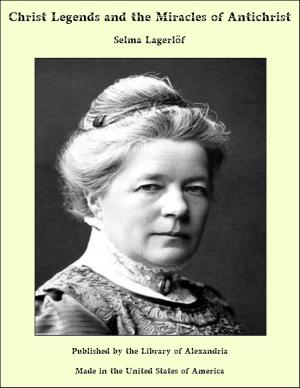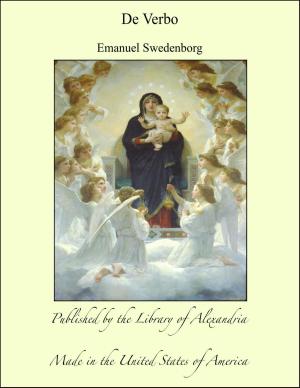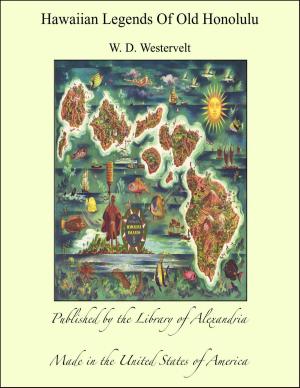The Makers of Canada: Champlain
Nonfiction, Religion & Spirituality, New Age, History, Fiction & Literature| Author: | N. E. Dionne | ISBN: | 9781465540997 |
| Publisher: | Library of Alexandria | Publication: | March 8, 2015 |
| Imprint: | Language: | English |
| Author: | N. E. Dionne |
| ISBN: | 9781465540997 |
| Publisher: | Library of Alexandria |
| Publication: | March 8, 2015 |
| Imprint: | |
| Language: | English |
In undertaking to write a biography of Samuel Champlain, the founder of Quebec and the father of New France, our only design is to make somewhat better known the dominant characteristics of the life and achievements of a man whose memory is becoming more cherished as the years roll on. Every one will admire Champlain's disinterested actions, his courage, his loyalty, his charity, and all those noble and magnificent qualities which are rarely found united in one individual in so prominent a degree. We cannot overpraise that self-abnegation which enabled him to bear without complaint the ingratitude of many of his interpreters, and the servants of the merchants; nor can we overlook, either, the charity which he exercised towards the aborigines and new settlers; the protection which he afforded them under trying circumstances, or his zeal in promoting the honour and glory of God, and his respect for the Récollet and Jesuit fathers who honoured him with their cordial friendship. His wisdom is evidenced in such a practical fact as his choice of Quebec as the capital of New France, despite the rival claims of Montreal and Three Rivers, and his numerous writings reveal him to us as a keen and sagacious observer, a man of science and a skilful and intrepid mariner. As a cosmographer, Champlain added yet another laurel to his crown, for he excelled all his predecessors, both by the ample volume of his descriptions and by the logical arrangement of the geographical data which he supplied. The impetus which he gave to cartographical science can scarcely be overestimated. Naturalist, mariner, geographer, such was Samuel Champlain, and to a degree remarkable for the age in which he lived. It is, perhaps, unnecessary to dwell upon the morality of the virtuous founder. The testimony of the Hurons, who, twenty years after his death, still pointed to the life of Champlain as a model of all Christian virtues, is sufficient, and it is certain that no governor under the old régime presented a more brilliant example of faith, piety, uprightness, or soundness of judgment. A brief outline of the character of Champlain has been given in order that the plan of this biography may be better understood. Let us now glance at his career more in detail. Before becoming the founder of colonies, Champlain entered the French army, where he devoted himself to the religion of his ancestors. This was the first important step in his long and eventful career. A martial life, however, does not appear to have held out the same inducements as that of a mariner. An opportunity was presented which enabled him to gratify his tastes, when the Spanish government sent out an armada to encounter the English in the Gulf of Mexico. Champlain was given the command of a ship in this expedition, but his experience during the war served rather as an occasion to develop his genius as a mariner and cosmographer, than to add to his renown as a warrior
In undertaking to write a biography of Samuel Champlain, the founder of Quebec and the father of New France, our only design is to make somewhat better known the dominant characteristics of the life and achievements of a man whose memory is becoming more cherished as the years roll on. Every one will admire Champlain's disinterested actions, his courage, his loyalty, his charity, and all those noble and magnificent qualities which are rarely found united in one individual in so prominent a degree. We cannot overpraise that self-abnegation which enabled him to bear without complaint the ingratitude of many of his interpreters, and the servants of the merchants; nor can we overlook, either, the charity which he exercised towards the aborigines and new settlers; the protection which he afforded them under trying circumstances, or his zeal in promoting the honour and glory of God, and his respect for the Récollet and Jesuit fathers who honoured him with their cordial friendship. His wisdom is evidenced in such a practical fact as his choice of Quebec as the capital of New France, despite the rival claims of Montreal and Three Rivers, and his numerous writings reveal him to us as a keen and sagacious observer, a man of science and a skilful and intrepid mariner. As a cosmographer, Champlain added yet another laurel to his crown, for he excelled all his predecessors, both by the ample volume of his descriptions and by the logical arrangement of the geographical data which he supplied. The impetus which he gave to cartographical science can scarcely be overestimated. Naturalist, mariner, geographer, such was Samuel Champlain, and to a degree remarkable for the age in which he lived. It is, perhaps, unnecessary to dwell upon the morality of the virtuous founder. The testimony of the Hurons, who, twenty years after his death, still pointed to the life of Champlain as a model of all Christian virtues, is sufficient, and it is certain that no governor under the old régime presented a more brilliant example of faith, piety, uprightness, or soundness of judgment. A brief outline of the character of Champlain has been given in order that the plan of this biography may be better understood. Let us now glance at his career more in detail. Before becoming the founder of colonies, Champlain entered the French army, where he devoted himself to the religion of his ancestors. This was the first important step in his long and eventful career. A martial life, however, does not appear to have held out the same inducements as that of a mariner. An opportunity was presented which enabled him to gratify his tastes, when the Spanish government sent out an armada to encounter the English in the Gulf of Mexico. Champlain was given the command of a ship in this expedition, but his experience during the war served rather as an occasion to develop his genius as a mariner and cosmographer, than to add to his renown as a warrior















